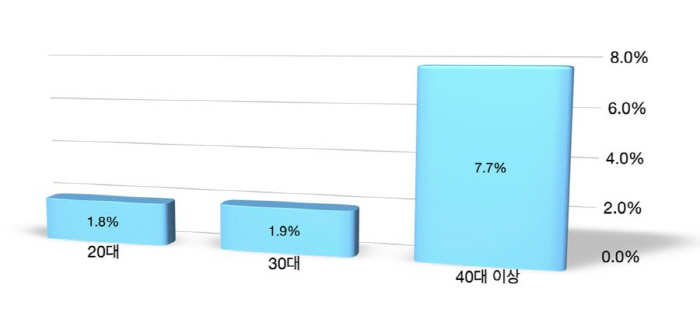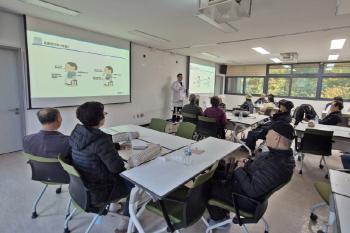Hidden lower jaw wisdom tooth, when should I take it out?
Nov 13, 2025
|
In the midst of this, a research team at Gangnam Severance Hospital's oral and maxillofacial surgery has announced the results of a study on the timing of extracting the wisdom tooth of the lower jaw.
Professor Huh Jong-ki and Kim Jae-young's team of oral and maxillofacial surgery started from the assumption that there will be differences in the cause, degree and difficulty of the extraction of the ambush wisdom tooth depending on the age, and studied the presence and type of complications related to the ambush wisdom tooth according to the patient's age.
According to previous research reports, wisdom teeth are found between the ages of 15 and 25, and wisdom teeth extraction occurred the most between the ages of 23 and 25.
On the contrary, some patients visit the hospital because their wisdom teeth were ambushed deep in the gums, but problems occurred after their 40s. This is because tooth decay around the wisdom tooth or periodontitis has progressed considerably, and it was left unattended because there was no discomfort or symptoms. The average age at which dental cysts, which absorb bones around the teeth and cause nerve damage due to ambushed wisdom teeth, were found was 45.9±13.3 years old.
The research team visited the oral and maxillofacial surgery clinic at Gangnam Severance Hospital in 2021 and targeted 831 patients who received wisdom tooth extraction. 555 people (66.8%) in their 20s, 159 people (19.1%) in their 30s, and 117 people (14.1%) in their 40s or older.
As a result of the study, patients in their 40s or older were more likely to experience discomfort due to wisdom teeth, infections, tooth decay, and cysts, and the incidence of complications than other age groups.
First, there was a difference in the difficulty of extracting the ambush wisdom tooth. The patient group in their 40s or older had a higher proportion of belonging to the most difficult difficult difficulty (Category III, IV) than the group in their 20s and 30s. 12.8% of patients in their 40s or older had difficulty, but only 3.1% of patients in their 20s. Since the wisdom tooth was deeply buried and there were no symptoms, it often reached the extraction after getting older. In this case, the wisdom tooth is located in a form that is difficult to extract, making the surgery more difficult.
There was also a significant difference in the occurrence of complications.
Of the 831 subjects in the target group, 22 (2.6%) showed complications. Compared to 10 people in their 20s (1.8%) and 3 people in their 30s (1.9%), those in their 40s and older were the highest with 9 people (7.7%).
In addition, the incidence of infection was also the highest among those in their 40s and older (1.7%), and dry extraction (Dry Socket), which suffers severe pain due to exposure of the gum bone to the extracted wisdom tooth, was observed only in the patient group in their 40s and older in this study.
When statistics on complications were comprehensively analyzed, the patient group in their 40s or older was 4.841 times more likely to develop complications than the patient group in their 20s.
The difference in causes leading to the extraction was also evident.
Most of the young people in their 20s and 30s have no problems yet, but the rate of preventive extraction was high to remove in advance, but the target group in their 40s and older had the lowest rate of preventive extraction with only 7.7%. On the contrary, the rate of reaching the extraction with pathological conditions such as severe cavities or gum disease reached 53.0%, far higher than those in their 20s (15.3%) and 30s (26.4%). The likelihood that patients in their 40s or older had to extract due to pathological conditions was 5.324 times higher than that of patients in their 20s.
Professor Kim Jae-young, who led the study, academically verified that the older you get, the higher the difficulty of extracting your lower jaw wisdom tooth, and that there is a serious problem, so if you extract it, the risk of complications including infection is much higher. Even if extraction is not performed as a preventive measure, periodic oral examinations are performed before wisdom teeth cause problems, but if there is a possibility of problems due to wisdom teeth, it is advantageous to perform extraction at a young age."
This research paper was recently published in the American Journal of Oral and Maxillofacial Surgery 'Journal of Oral and Maxillofacial Surgery'.
|
|
This article was translated by Naver AI translator.
















